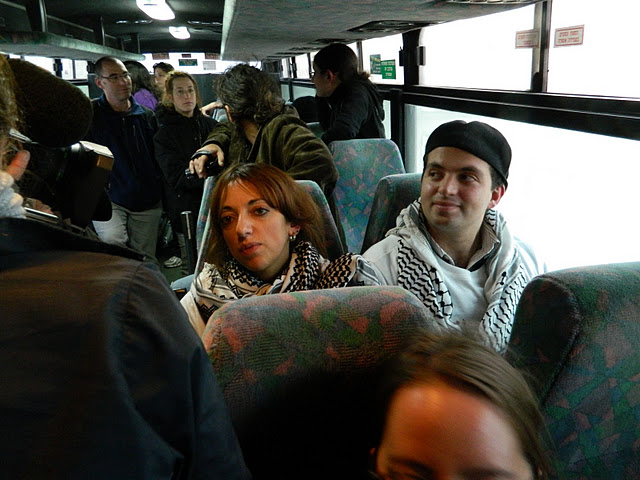-
A visual chronology of the Freedom Rides
by Dena Elian 16 November 2011 | Sixteen Minutes to Palestine On November 15, 2011, six Palestinian Freedom Riders boarded a settler-only bus traveling to occupied East Jerusalem to openly challenge Israel’s apartheid policies towards Palestinians and its minority populations. The following is a visual chronology of the events.
-
Gaza lives on
16 November 2011 | Al Jazeera English The Israeli blockade may have taken a heavy toll on Gazans, but this film reveals life and hope among the devastation. Since 2007, most of the approximately 1.5 million Palestinians living in the Gaza Strip have suffered gravely from an intensified land, air and sea blockade imposed by Israel. […]
-
Independence Day in the Buffer Zone
by Nathan Stuckey 16 November 2011 | International Solidarity Movement, Gaza Twenty three years ago today the Palestinian declaration of independence was released. Written by Mahmoud Darwish, and unveiled to the world by Yasser Arafat in Algiers where he was living in exile like millions of other Palestinians. Today, in Beit Hanoun, we, the Local […]
Action Alert An Nabi Saleh Apartheid Wall Arrests BDS Bethlehem Bil'in Cast Lead Demonstration Denial of Entry Ethnic Cleansing Farmers Gaza Global Actions Hebron House Demolition International law Israeli Army Jerusalem Live Ammunition Nablus Ni'lin Prisoner Ramallah Rubber-coated steel bullets Settlement Settlers Settler violence Tear-Gas Canister Video


